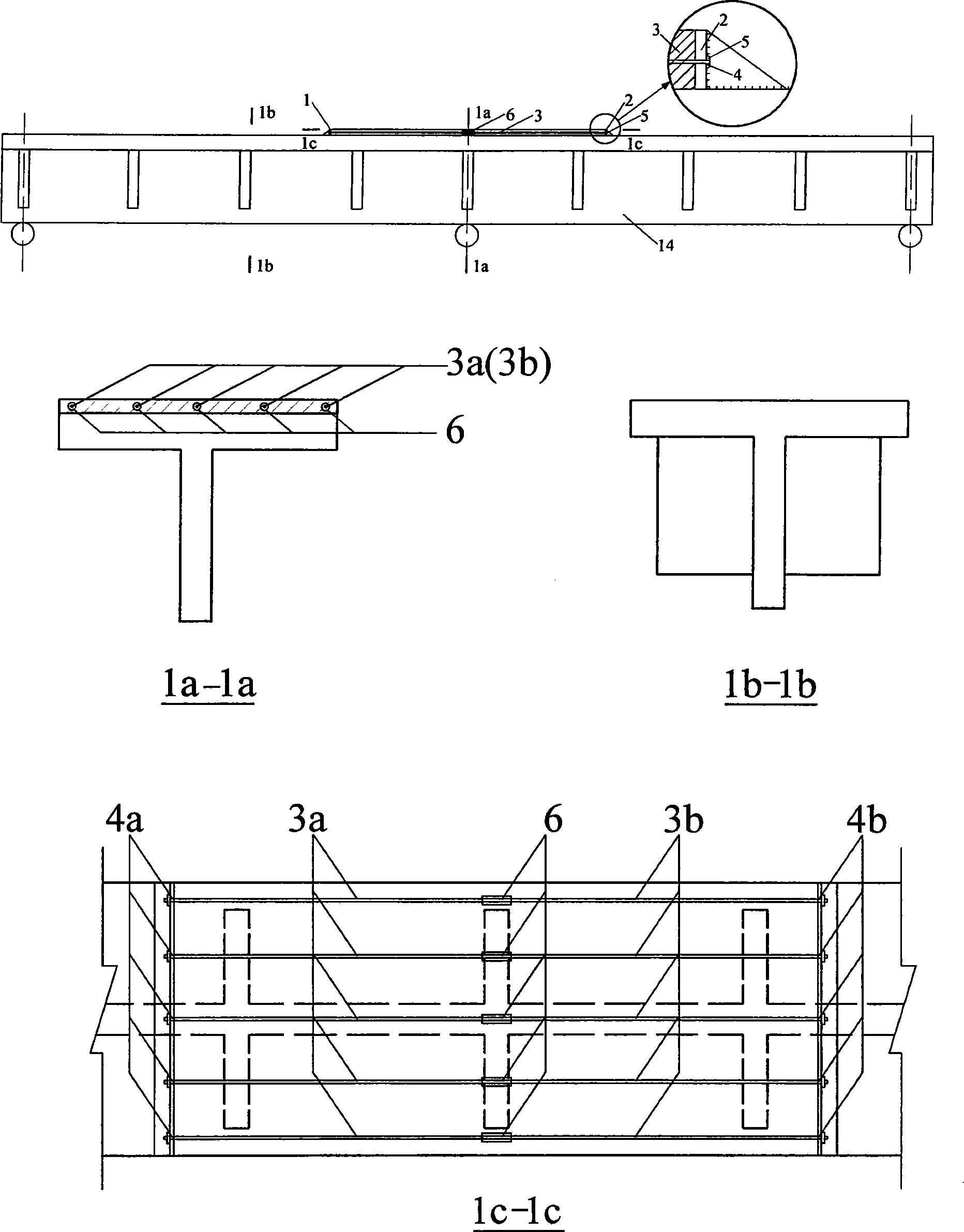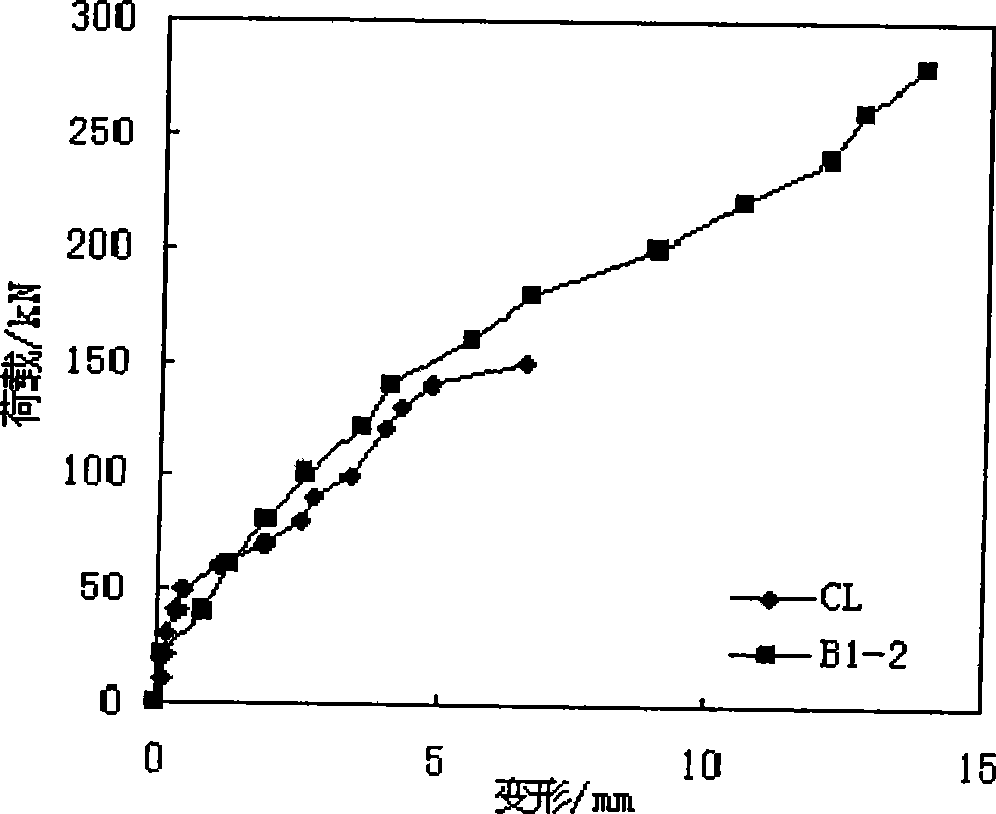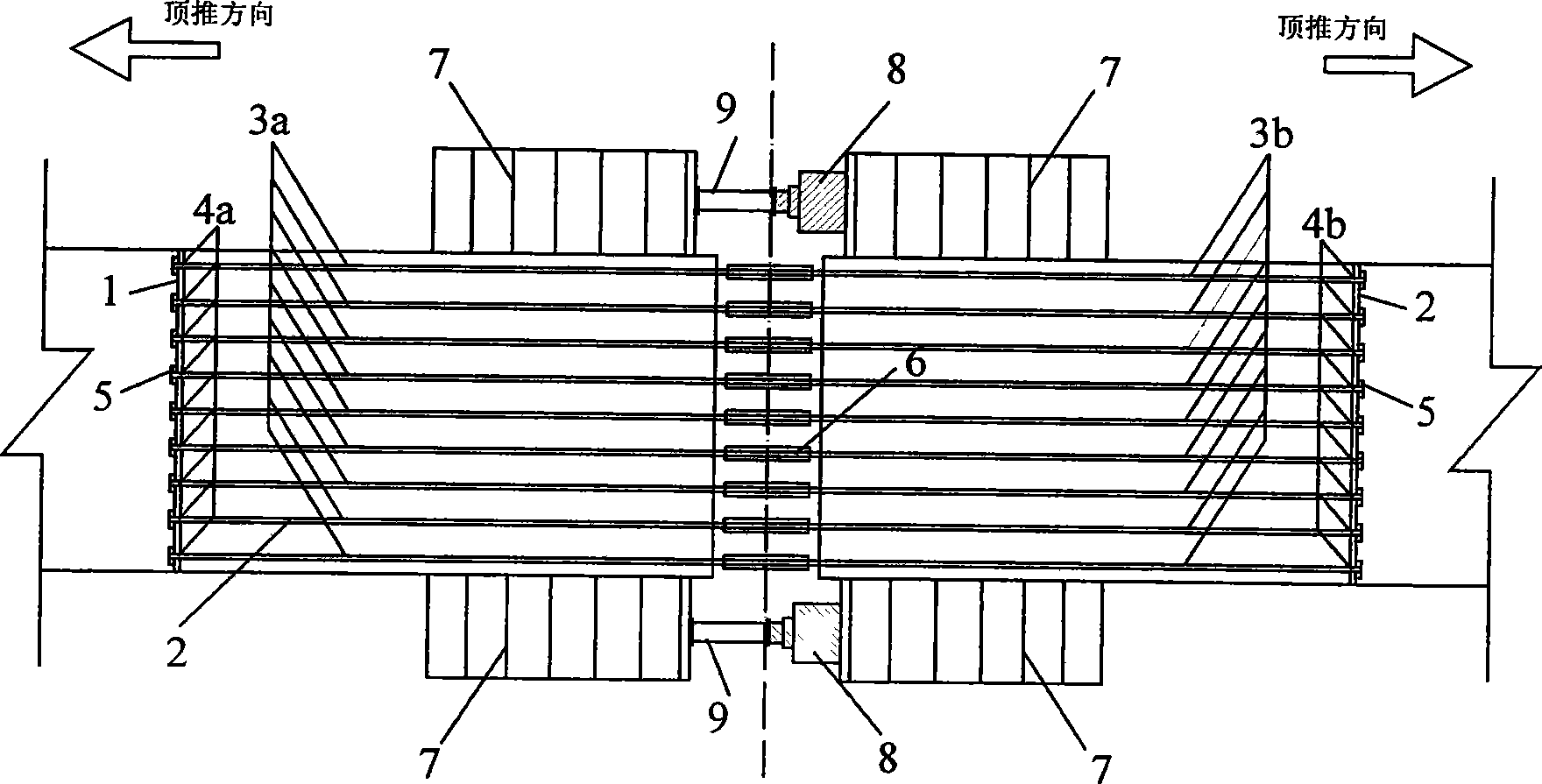Pretensioning method for converting old simply supported beam bridge into continuous bridge
A technology for simply supported girder bridges and support girder bridges, which can be used in bridges, bridge materials, bridge maintenance, etc., and can solve problems such as many expansion joints and frequent driving bumps.
- Summary
- Abstract
- Description
- Claims
- Application Information
AI Technical Summary
Problems solved by technology
Method used
Image
Examples
specific Embodiment approach
[0028] A pretensioning method for converting old simply supported girder bridges into continuous girder bridges:
[0029] a. Embed vertically placed horizontal first steel plate 1 on one side of the end that needs to be connected in the longitudinal direction of old simply supported T-beam 14, and embed vertically placed horizontally second steel plate 2 on the other side, and lay connection pre-installation on the steel plate. The position of the stress tendons 3 is drilled in advance, and the size of the holes can pass through the prestress tendons 3,
[0030] B. in the hole 4a of the first steel plate, penetrate the prestressed tendon 3a, also penetrate the prestressed tendon 3b in the hole 4b of the second steel plate, will be positioned at the prestressed tendon outside the area between the first steel plate and the second steel plate One end of the tendon is anchored with a heading anchor 5, and the other end of the prestressed tendon passing through the first steel plat...
PUM
 Login to View More
Login to View More Abstract
Description
Claims
Application Information
 Login to View More
Login to View More - R&D
- Intellectual Property
- Life Sciences
- Materials
- Tech Scout
- Unparalleled Data Quality
- Higher Quality Content
- 60% Fewer Hallucinations
Browse by: Latest US Patents, China's latest patents, Technical Efficacy Thesaurus, Application Domain, Technology Topic, Popular Technical Reports.
© 2025 PatSnap. All rights reserved.Legal|Privacy policy|Modern Slavery Act Transparency Statement|Sitemap|About US| Contact US: help@patsnap.com



